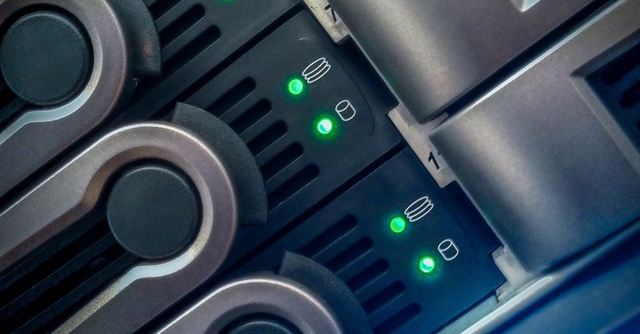
World Backup Day: Data backup trends every CIO/CTO should watch for


The concept of data backup has been around for almost as long as computers have existed, but the backup industry is constantly evolving. The exponential growth of data and blurring security perimeters have made data backup a key aspect of an organisations business strategy. As organisations adopt a cloud journey and explore artificial intelligence (AI) possibilities the amount of data created and used is increasing significantly, prompting the need for a strong data preservation plan. They must also consider how remote work will impact backup and data protection efforts. With the coming of World Backup Day (March 31) which serves as a timely reminder for organisations to re-evaluate their approach to data security, here are some data backup trends that every CIO/CTO should watch for.
1. Using AI but with caution
The rapid mainstream adoption of AI platforms, such as OpenAI's ChatGPT, has created a major shift in the backup landscape. Software vendors are incorporating AI capabilities into their products, including backup solutions. AI can help IT professionals identify gaps in protection and improve data security. Additionally, AI may assist in ransomware recovery by identifying when files were encrypted and minimising data loss during recovery.
However, Remus Lim, SVP Cloudera APJ believes that to be able to trust their data is just as important. “Enterprises must ensure that they have data governance frameworks in place so that their data sets are accurate, complete and consistent, and in compliance with government regulations,” he said. Lim further believes that it is essential to invest in a modern data management platform that can deliver a real-time overview of data across multi-cloud and on premises. Such platforms allow them to actively monitor for threats while accelerating their AI and digital transformation initiatives through instantaneous access to high-quality data.
2. Be prepared for cloud outages

Despite efforts to achieve 100% service availability, major software-as-a-service (SaaS) providers have experienced outages. This realisation has prompted backup professionals to consider redundancy measures in case a cloud backup provider experiences downtime.
Cloud security specialist Mike Holt, for example, believes, a thoughtful post-outage analysis is key! Identifying the root cause, detailing the timeline, actions taken, and lessons learned is pivotal for future resilience.
“Customer and stakeholder feedback is gold — addressing concerns and suggestions strengthens trust. Documenting findings and recommendations, then implementing changes, ensures a proactive approach to preventing or mitigating future hiccups. Transparency is key; sharing insights cultivates a culture of continuous improvement,” he mentioned in a LinkedIn post.
3. More focus on data privacy

With many organisations adopting a hybrid workforce, data privacy and protection for remote employees is crucial. Cloud-based virtual desktops offer a secure solution for users to save data centrally, reducing the risk of data loss. This approach makes it easier to back up all organisational data, regardless of where employees are working.
Praveen Kulkarni, Director — Security, Risk & Governance at OpenText India, believes that the priority of data privacy and hygiene has become the basis for better security than storage and restoration. CIOs should leverage data analytics to uncover redundancies and inefficiencies, streamline data storage, and reduce the organisation's data footprint. "Moreover, by improving data cleansing with enhanced privacy, organisations can optimise data backup spend and strengthen security defenses, including discretion and access control, to protect sensitive information,” he said.
4. Increased demand for cyber resilience

Businesses are prioritising cybersecurity measures for backups to protect sensitive data. In fact, members of top management, including the CEO, will become more committed to cyber defense moving forward and this is where a robust cyber backup strategies. The reality however, is different. An IDC survey commissioned by Commvault found that only 33% of senior executives are involved in current cyber-preparedness initiatives, even though CIOs are aware that data loss can have a serious consequence to their firm.
Sudharsan Aravamuthan, Head — Systems Engineering, India, Pure Storage stressed that businesses should adopt a multi-tier cyber resilient data protection architecture to increase resilience and durability. At the same time, Zero-trust initiatives can be implemented to safeguard against ransomware attacks on backups.
Many are also investing in data backup training and access to specialists to expand their knowledge in these areas, as cyber security expert Prateek Bhajanka mentioned, adopting the Zero Trust model is a critical step in safeguarding business continuity and reputation in the digital age. “As more and more organisations adopt a Zero Trust model, backup and recovery solutions need to evolve to meet the rapidly changing needs of the security landscape,” he said.

